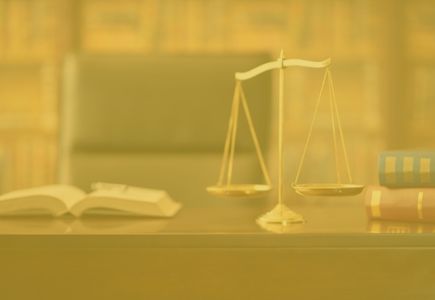
Personal Injury Cases
Recovering from a personal injury is difficult enough without the added burden of someone else’s negligence.
Dealing with the responsible party, their insurance carriers, and their legal teams can quickly become an overwhelming battle.
At Lloyd & Lloyd, we step in to handle that fight. With decades of experience and a strong record of success, our attorneys manage all the legal complexities, allowing you to focus completely on your physical and emotional recovery.

-
Car Crashes
-
Truck Crashes
-
Pedestrian Injuries
-
Bicycle Crashes
-
Insurance Disputes
-
Nursing Home Injuries
-
Slip and Fall Injuries
-
Class Action Lawsuits
-
Product Liability
-
Dog Bites

Personal Injury Case FAQs
Is it worth getting a personal injury lawyer?
The legal system is complicated, to say the very least. You absolutely need a lawyer to navigate any personal injury case—even to see if you have a case to begin with. In most cases, the damages awarded more than make up for the cost of a good lawyer.
Lloyd & Lloyd provides free consultations for any case. Contact us today to set up an appointment and see what we can do for you.
What kind of cases do personal injury lawyers handle?
Lloyd & Lloyd handles all kinds of personal injury cases that can result from any of these incidents:
- Traffic wrecks involving cars, semi-trucks, motorcycles, bicycles or pedestrians
- Slip-and-fall accidents
- Medical malpractice and wrongful death
- Nursing home abuse and elder abuse
- Product liability
- Dog bites
What qualifies as a personal injury case?
A personal injury case must answer 3 questions:
- Was the incident and injury caused by negligence?
- Is another party at fault, and is the incident within the statute of limitations?
- Did you suffer financial loss or emotional hardship as a result of the injury?
If you can answer “yes” to all 3 questions, chances are you have a viable personal injury case and could be entitled to damages.
For help answering these questions, contact Lloyd & Lloyd today for a free consultation.
For more information about personal injury cases, check out this blog.
Can you get money for pain and suffering or emotional distress?
Yes. Pain & suffering, emotional distress and loss of companionship, reputation, or enjoyment of life are all considered non-economic losses. You can be financially compensated for experiencing any of these undue hardships.
No two personal injury cases are the same. Each case has its own factors that will determine how it plays out overall. But generally, all personal injury cases must answer 3 main questions:
1) Was the incident caused by negligence?
- Negligence is simply a failure to exercise due care in one’s responsibilities. Perhaps a homeowner doesn’t fix a broken stair that injures a guest, or a business fails to clean up a spill that a customer slips on, or a city employee causes a car crash in a government-owned vehicle.
2) Who’s at fault for the incident that caused the injury, and is the incident within the statute of limitations?
- Who caused the incident? Is it a single person, a business, a government entity, and, importantly, is the victim partially at fault? If the victim is found to be partially at fault, their damages could be reduced. This is called “comparative fault,” but more on that in a moment.
- The statute of limitations—which is the time limit one has to file a lawsuit after an incident—is 2 years from the date of the incident if an individual or business is at fault, and 1 year from the date of the incident if a government entity is at fault. For incidents resulting in death, the statute of limitations starts from the date of death, not the incident.
3) What are the victim’s damages?
- Victims in personal injury cases are awarded “damages” to compensate them for their injuries and associated effects. Damages are split into 3 categories:
- Economic damages are awarded to cover direct financial loss like medical bills, lost wages, or repair costs
- Non-economic damages are awarded to cover psychological effects like pain and suffering, emotional distress, and loss of companionship, reputation, or enjoyment of life.
- Punitive damages are awarded for the purpose of punishment—not to compensate for any loss—and are reserved for more reckless, intentional, or malicious cases.
- Comparative fault: As we mentioned before, if the plaintiff in the personal injury case is determined to have any fault in the injurious incident, their damages would be reduced proportionally. For example, if you were in a car crash, but were found to be 30% at fault because you were speeding, your damages would be reduced by 30%.
These are just the 3 main questions, but the answers are never simple.
That’s why Lloyd & Lloyd is here: to help you through the complicated and frustrating process of a personal injury case.

GET THE EXPERIENCE YOU NEED FOR YOUR CASE
If you have been injured due to the fault of others, contact Lloyd & Lloyd. Our record of success in the courtroom and in the courts of appeal, combined with our commitment to giving personal service, enable us to provide exceptional legal representation. You can fill out an online case review form by clicking here, or by calling us at 918-417-6580.
